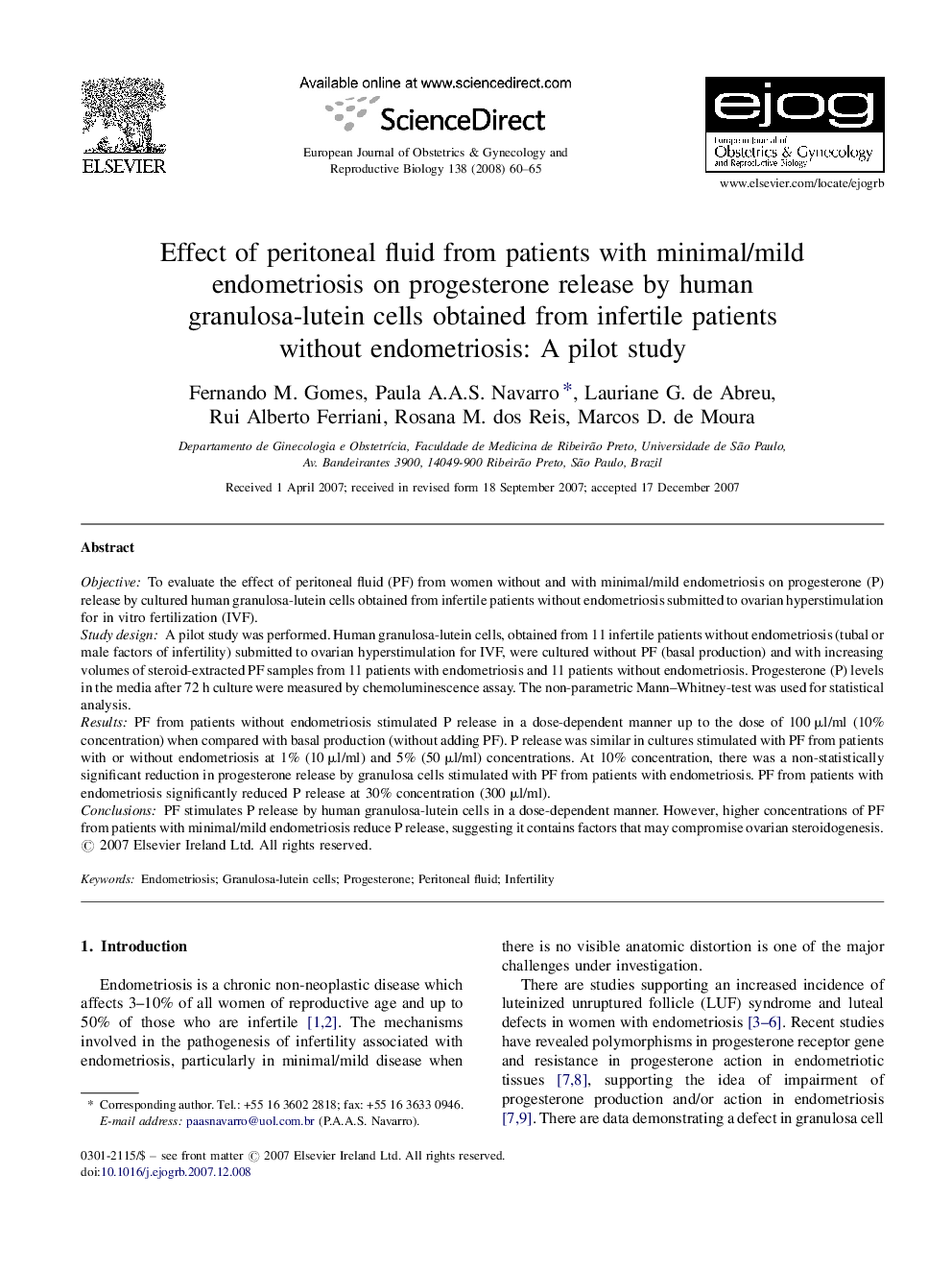| Article ID | Journal | Published Year | Pages | File Type |
|---|---|---|---|---|
| 3921358 | European Journal of Obstetrics & Gynecology and Reproductive Biology | 2008 | 6 Pages |
ObjectiveTo evaluate the effect of peritoneal fluid (PF) from women without and with minimal/mild endometriosis on progesterone (P) release by cultured human granulosa-lutein cells obtained from infertile patients without endometriosis submitted to ovarian hyperstimulation for in vitro fertilization (IVF).Study designA pilot study was performed. Human granulosa-lutein cells, obtained from 11 infertile patients without endometriosis (tubal or male factors of infertility) submitted to ovarian hyperstimulation for IVF, were cultured without PF (basal production) and with increasing volumes of steroid-extracted PF samples from 11 patients with endometriosis and 11 patients without endometriosis. Progesterone (P) levels in the media after 72 h culture were measured by chemoluminescence assay. The non-parametric Mann–Whitney-test was used for statistical analysis.ResultsPF from patients without endometriosis stimulated P release in a dose-dependent manner up to the dose of 100 μl/ml (10% concentration) when compared with basal production (without adding PF). P release was similar in cultures stimulated with PF from patients with or without endometriosis at 1% (10 μl/ml) and 5% (50 μl/ml) concentrations. At 10% concentration, there was a non-statistically significant reduction in progesterone release by granulosa cells stimulated with PF from patients with endometriosis. PF from patients with endometriosis significantly reduced P release at 30% concentration (300 μl/ml).ConclusionsPF stimulates P release by human granulosa-lutein cells in a dose-dependent manner. However, higher concentrations of PF from patients with minimal/mild endometriosis reduce P release, suggesting it contains factors that may compromise ovarian steroidogenesis.
